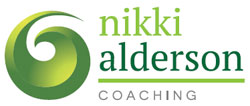Do you struggle to say no? Have you ever been stretched too thinly as a result? Can you relate to the feeling that you’ve said yes to so much that you’re now at risk of doing everything badly, rather than a few things well?
A complete sentence
Well if so, remember: No is a complete sentence. A lot of people forget that.
No.
See? Try it.
Say yes to opportunity
Having said that, my starting point on this important coaching topic for female lawyers is to follow the, in this instance opposing, advice of Baroness Hale. I saw her speak at an event in Leeds where she advocated for saying yes to every opportunity law had to offer, even if it sent you down the road less travelled, and away from what might once have been a carefully considered career path or plan. I absolutely agree.
But not where to say yes means you become the office lap dog, forgetting yourself and your own goals, objectives and needs entirely. I’m talking about the well-considered yes, which might ultimately lead you, on occasion, to have to say no.
Sustainability
The point here is about sustainability. Is it sustainable to say yes to each and every thing, if by doing so you inevitably end up pushing to the bottom of the pile the important stuff to you, and for which you leave, at best, limited capacity, at worst, no space at all?
Does saying yes serve me? What’s in it for me?
Of course, I understand people say yes for a whole host of reasons, many of which actually turn out to be self-serving, even if the end result is detrimental to their mental or physical health. Which is why I ask, is saying yes, (without question, and constantly), sustainable for, and conducive with, a long and happy life in law?
It may serve you to get, stay, or get back, in with the boss, or organisation more widely, when you are, for example, a pupil barrister seeking tenancy; a trainee solicitor seeking a training contract; a promotion applicant; a career break returner. But if that continues beyond the question “What’s in it for me?” and becomes regular, common place people pleasing, or saying yes to “prove a point”, surely that can’t be healthy?
Indispensability at work and elsewhere
We are all so skilled at making ourselves feel indispensable at work. But the truth of the matter is, none of us are. The only place we truly are indispensable is home. I’ve learnt this the hard way, very recently, in the face of a serious health diagnosis whilst staring my mortality right in the face. Mums are irreplaceable. Fact. Back at work, leaving Chambers, I can say from experience, you’re generally missed only until the next “bum on seat” arrives.
Start positively: To what would you say yes, and how can you best communicate that to others?
The topic of needing to say no comes up time and again in coaching sessions. Begin by turning things on their heads, by returning to Baroness Hale’s point: To what are you prepared to say yes? Start from a positive position to identify your own boundaries. Think of what you’d be content to take on, before considering what to dispense with, those things you are unhappy to do.
You then identify your boundaries from a positive place (and by default) as opposed to over-focusing on the problems – the things you dislike doing with a passion, and you will likely become overwhelmed with, ill even, by continuing to say yes to them over the longer term.
Communicating those boundaries to others in a similarly positive manner – the list of things you WILL do, as opposed to a long list of all the things you won’t – will be far better received and will be more persuasive as result.
Unreasonable requests reassurance
Take reassurance, commencing this exercise, knowing that, factually, not all requests within a workplace ARE reasonable: Occasionally, saying no is absolutely acceptable.
For example, the CEO of a global law firm should NOT expect an associate solicitor to dial into a weekly catch up call every Friday at 10pm simply because, during the pandemic, taking account of time differences across the world, the team had, from time to time, obligatory meetings during anti-social UK hours.
Likewise, the clerks in Chambers should NOT insist a baby barrister does the “bag of rats”/ “hospital pass” return case from hell that no other sane, experienced practitioner would accept, simply because they have the misfortune to have one clear day showing in their diary.
To be otherwise would potentially call peoples’ professionalism into question, leaving them dangerously exposed.
Alignment of Values and Beliefs
So other than thinking about what you’d like to do, and practising communicating those boundaries in a positive way, what else can be done to gain confidence around forming those lines in the sand?
How about your values and beliefs? Do you have a strong connection with them?
A common coaching exercise I take clients through is to identify their top 3 values, which can be really insightful for them in deciding whether a task or role is something they actually want to take on at all. Any incongruence will, once again, reveal the unsustainability of continuing to please others saying yes which, to take it a stage further, effectively means saying no to yourself.
Practise makes progress
Safe in the knowledge your values and beliefs are on your side, and having positively communicated what it is you WILL do, take the exercise one step further. Practise saying no.
It’s been described as an art form, and if you’re not quite ready for the complete one-word sentence, I’d recommend playing around with how it is you communicate a no without actually saying the word. In his super book, Essentialism, Greg McKeown gives some great strategies on this: the use of pause, humour, delegation, referral, to name but a few. Build up to a no by doing role plays with friends or colleagues; test it out in a safe environment at home. Get comfortable with it, by saying it to yourself aloud so repeatedly that it begins to lose all sense, meaning and, most importantly, power.
Remind yourself that, on occasion, a no can truly serve you.
No.
To return full circle, no is, and remains, a complete sentence. By adopting these strategies and approaches, I’d hope it’s one you can now feel more confident to say and assert.
No?
Nikki Alderson Biography
Nikki Alderson, specialist coach, speaker and author, and former Criminal Barrister with 19 years’ experience:
- supports organisations, law firms and barristers’ Chambers to retain female talent; and
- empowers female lawyers to achieve career ambitions.
Nikki specialises in 3 areas:
- Women leadership transition and change;
- Enhanced career break returner support; and
- Workplace resilience, mental toughness, confidence and wellness.
She is the author of Amazon No.1 Bestseller Raising the Bar: empowering female lawyers through coaching, (https://amzn.to/3fodKQX) nominee for the Inspirational Women Awards, Champion of the Year Category and finalist in the 2020 Women in Law Awards, Legal Services Innovator of the Year and 2019 International Coaching Awards, International Coach of the Year Category.

